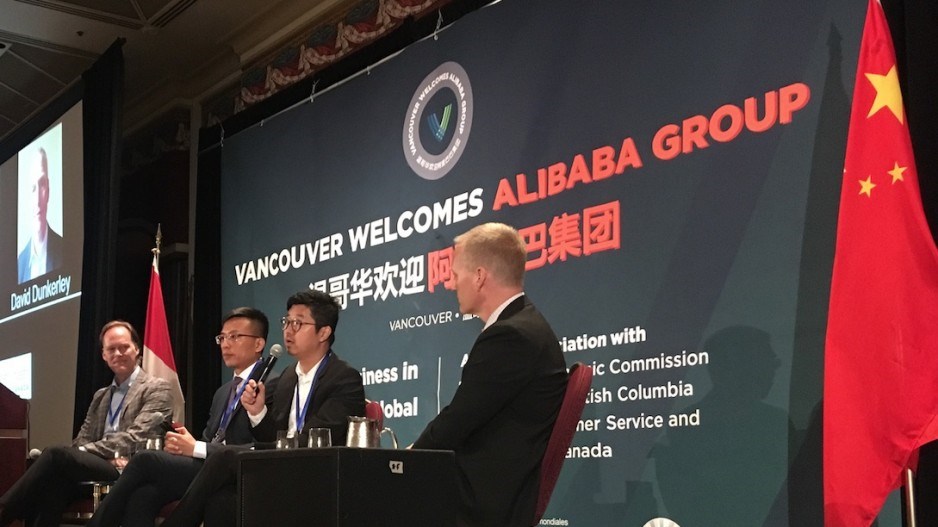Alibaba is seeking to lease real estate for a Vancouver office that within “two to three years” will employ at least 30 people, Alibaba Group North America general manager Steve Wang told Business in Vancouver May 11 at a forum that the Chinese e-commerce company hosted at the Hotel Vancouver.
“We do not have a specific announcement about an office opening today,” he said. “Today, we are focused on educating on Alibaba’s solutions to help Canadian businesses access the China market. We are committed to Canada and Vancouver for the long term and intend to expand our operations here.”
Wang, who lives in Vancouver and travels extensively, oversees hundreds of Alibaba workers, who now are based in six North American locations: Seattle, San Francisco, Los Angeles, San Mateo, Washington D.C., and New York City.
Alibaba has yet to base any staff in Canada and no Canadian office outside Vancouver is currently being contemplated, although small teams may be created across Canada, said Candice Huang, who is Alibaba’s senior manager of international corporate affairs.
The move to make Vancouver the first city in Canada to get an office, instead of Toronto, is a surprise given that Alibaba's first Gateway conference was in Toronto, and the company had seemed to be making Toronto a first priority.
Huang said that staff in the future Vancouver office will likely work to help B.C. and other Canadian entrepreneurs understand and access Alibaba’s platforms. Other employees are likely to work to link tourism-related businesses with Alibaba’s online travel platform Fliggy, which facilitates travel mostly for Chinese residents.
Canadian tourism-related businesses, such as Air Canada or the Capilano Suspension Bridge, would be able to create their own online stores on Fliggy, Huang explained.
B.C. businesses have long been selling products on Alibaba, and the number of those businesses has risen considerably since September 2016, when Prime Minister Justin Trudeau went to China, met Alibaba CEO Jack Ma, and announced an agreement between the Canadian government and Alibaba.
That agreement aimed to make it easier for B.C. companies to reach what is now 500 million or more consumers who use Alibaba platforms.
The Canadian government then set up an online store on Alibaba’s Tmall platform.
Lululemon Athletica Inc., Arc’Teryx and Norco Bicycles are among the other B.C. companies selling products on Alibaba platforms.
By 2022, the combined population of Canada and the U.S. is expected to reach 378 million, while China’s middle-class population is projected to exceed 600 million people.
Cross-border retail e-commerce spending in China is expected to grow six-fold between 2015 and 2020, to US$245 billion, according to AliResearch, Accenture.
The largest import categories for products sold on Alibaba are beauty, fashion, healthcare, home supplies, baby supplies and snacks and beverages.
Selling on Alibaba, however, can be complicated.
The company operates various platforms, including Taobao, Alibaba.com and Tmall sites.
Chinese entrepreneurs pay to create online Tmall stores and then set up web pages to sell their products.
Canada’s Canadian Pavilion site is an example of one of those stores. When buyers click to buy items, they get redirected to one of the Canadian stores operating on Tmall.
SunRype’s Chinese partner, for example, operates a Just Order store, but the Kelowna-based company also resells SunRype products to owners of other stores so they can sell the goods.



